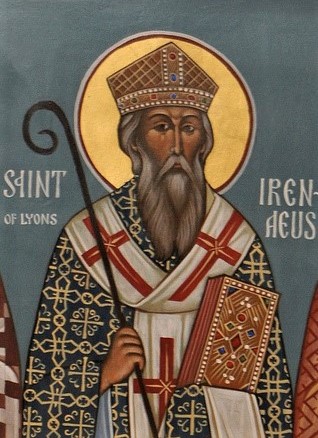In 1750 he arrived by ship at Vera Cruz, Mexico. He and a companion walked the 250 miles to Mexico City, but on the way Junipero's left leg became infected by an insect bite. This would remain a difficult and often life-threatening illness for the rest of his life. For eighteen years he worked in central Mexico and in the Baja Peninsula. He then went to the area of present-day Monterey, California. The first mission was founded after the nine-hundred-mile journey north in 1769. Other missions followed, making a total of nine missions being founded under the direction of St. Junipero, and twelve more were founded after his death.
Junipero's missionary life was a long battle with cold and hunger, with unsympathetic and prideful military commanders, and even with danger of death from the native people he had come to serve. During his ministry he baptized more than six thousand people and confirmed some five thousand. His travels would have circled the globe. He brought to the people of the New World not only the gift of faith but also the highest standard of living they had ever known. He was deeply loved by the people he served, which they showed by their outpouring of grief at his death in 1784.
He was beatified in 1987 and canonized on 23 September 2015.
O God, who by thine ineffable mercy hast been pleased through the labours of thy Priest Saint Junipero Serra to count many American peoples within thy Church: grant by his intercession; that we may so join our hearts to thee in love, as to carry always and everywhere before all people the image of thine Only Begotten Son; who liveth and reigneth with thee, in the unity of the Holy Spirit, ever one God, world without end. Amen.
______________________________________
Pictured: Statue of St. Junipero Serra,
located in the National Statuary Hall, Washington, D.C.


















